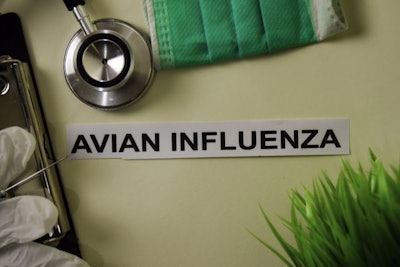
Three additional cases of highly pathogenic avian influenza (HPAI) were confirmed in commercial turkey flocks in South Dakota, bringing the number of counties in the state with reported cases up to five.
According to the United States Department of Agriculture (USDA) Animal and Plant Health Inspection Service (APHIS), HPAI was confirmed in the South Dakota counties of Beadle, Hanson and Charles Mix on March 22, affecting 29,900, 102,250 and 57,100 turkeys, respectively.
Earlier this week, APHIS reported 49,000 infected turkeys in Hutchinson County, 39,000 infected turkeys in Kingsbury County and 20,233 infected turkeys in Hanson County.
These cases follow two earlier HPAI cases in commercial operations in Charles Mix County. The first was a mixed flock of 47,330 birds. APHIS did not elaborate on what species were in that flock, but the World Organisation for Animal Health (OIE) revealed that there were turkeys in the flock. The other case was a commercial flock of 36,000 turkeys.
Symptoms of HPAI include a decrease in water consumption, lack of energy and appetite, decreased egg production, nasal discharge, sneezing, incoordination and diarrhea. The disease can cause sudden death in birds even if symptoms do not appear.
In addition to South Dakota, HPAI has also been confirmed in commercial poultry flocks in Nebraska, Maryland, Delaware, Indiana, Kentucky, Missouri, Wisconsin and Iowa. It has also appeared in a commercial flock in the Canadian province of Nova Scotia.
HPAI has also been confirmed in all four North American flyways, but only three flyways have had confirmed cases in commercial poultry. The Pacific Flyway case involved a bald eagle in British Columbia, Canada. HPAI cases in wild birds such as that eagle should not result in any poultry trade bans, in accordance with standards set by the OIE.
To date, 13,553,395 reported birds have been affected by HPAI in the U.S.
To learn more about HPAI cases in North American commercial poultry flocks, see an interactive map on WATTPoultry.com.
Read our ongoing coverage of the global avian influenza outbreak.


















